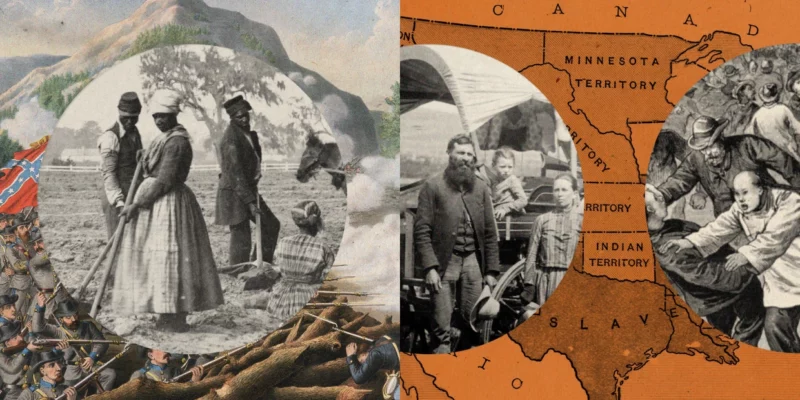How ex-Confederates spread racist attitudes far and wide after the Civil War
Share
Explore Our Galleries
Breaking News!
Today's news and culture by Black and other reporters in the Black and mainstream media.
Ways to Support ABHM?
By Curtiss Bunn, NBC
The “Confederate Diaspora” has contributed to systemic racism in almost every area of life, and it continues shape “racial inequities in labor, housing, and policing,” researchers wrote.

A new study outlines how white people’s migration during and after the Civil War, from the Confederate South to the West, bolstered white supremacy and institutional racism in non-slave states, helping create the vast racial disparities that exist today nationwide.
Five researchers from separate colleges collaborated on the study, called “Confederate Diaspora,” to compile and study census data that tracked the migration to the West of white Americans, including 60,000 former plantation owners. The former Southerners took on local positions of authority, like police officers, clergy and politicians, giving them influence to create a post-Civil War culture that continued to oppress Black people even after slavery had ended.
This results in structural and systemic racism in almost every walk of life today — education, housing, jobs, health care and wealth, among other areas — that continues to hamper progress for Black people, according to a working paper by the National Bureau of Economic Research this month.
The former Confederates “continued to transmit norms to their children and non-Southern neighbors,” the researchers wrote, “shaping racial inequities in labor, housing, and policing.”
Keep reading to learn how one researcher describes the impact of Confederates around the country.
Many Confederate symbols and monuments remain to this day.









Comments Are Welcome
Note: We moderate submissions in order to create a space for meaningful dialogue, a space where museum visitors – adults and youth –– can exchange informed, thoughtful, and relevant comments that add value to our exhibits.
Racial slurs, personal attacks, obscenity, profanity, and SHOUTING do not meet the above standard. Such comments are posted in the exhibit Hateful Speech. Commercial promotions, impersonations, and incoherent comments likewise fail to meet our goals, so will not be posted. Submissions longer than 120 words will be shortened.
See our full Comments Policy here.